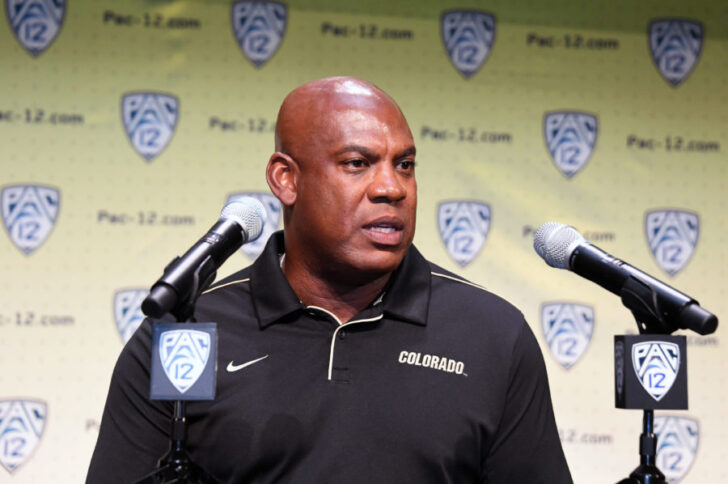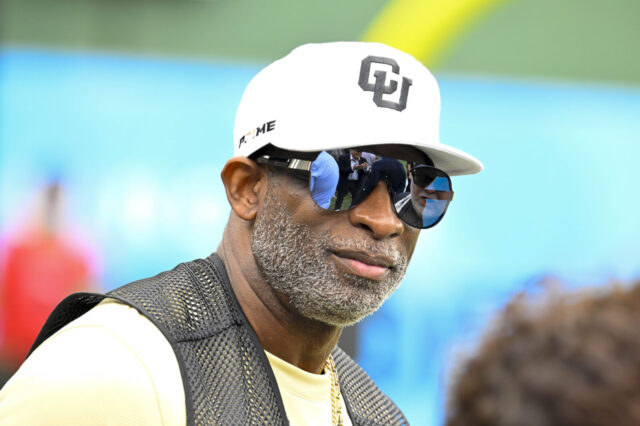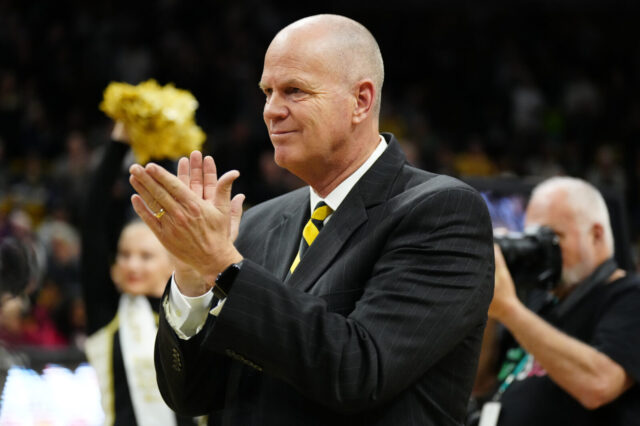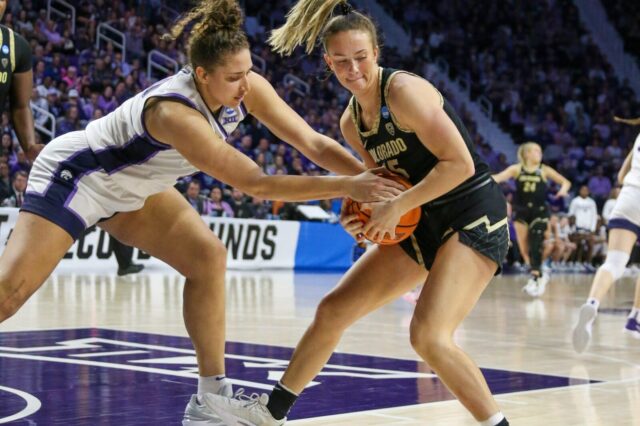Put aside for the moment that Mel Tucker has suddenly become enemy No. 1 in Colorado.
Put aside his ethics and obligations. Forget that – whether you would’ve taken the money or not – there was probably a better way to handle things.
Put aside your feelings for Dear Old CU, whether they’re good, bad or indifferent.
This situation isn’t Mel Tucker’s fault, Michigan State’s fault or CU’s fault.
This one belongs to the NCAA.
College sports is a professional entity using amateur athletes and making a lot of money. And hey, there’s no problem with making money – but let’s just call it what it is, bigtime business. If there wasn’t a ton of money to go around, a guy like Tucker couldn’t, or wouldn’t, have the chance to go double his already lucrative $2.675 million salary.
And good for him – this is America, land of opportunity.
But the hypocrisy within the situation is so thick its sickening. On one day, a leader – an educator – can sit inside a young man’s living room and promise mom and dad that he’s going to do his best to raise their son the way they’d want him raised. That it’s about more than winning. It’s about life and values and….
Buffalo sh*t.
The next day, the coach does what practically any American would do if given the opportunity: Double his quality of life, promises and values and processes be damned.
Again though, this is isn’t a debate about Mel Tucker and his values or lack thereof. This is about the fact that he can do what he just did.
Wouldn’t a simple rule eliminate all of this from happening?
Sports are a strange business. Competitors aren’t just necessary; they are, in many ways; partners. Michigan State needs Colorado needs Texas needs Notre Dame needs Boise State…they all need each other, otherwise there’s nobody to play, nobody to beat. And in most ideal scenarios, competitive balance is necessary in order for anyone in the business of sports to be successful financially.
Look no further than the NFL. Easily the most successful sports product in America. What makes the NFL different from most other pro sports entity, though? It’s “On any given Sunday…” Meaning, that every team has a chance. On one day. In one season. Over the long haul. And that’s why fans love it; everyone has a chance, or a perceived chance, to win.
Part of that is because NFL owners tend to look out for each other. They like lining each other’s pockets a lot more than picking them. And that’s particularly true when it comes to hiring new coaches. Owners don’t poach coaches at an equal level from one another. Sure, they don’t prohibit assistant coaches from advancing themselves, but teams don’t steal other teams’ head coach. Essentially, the league prohibits Jerry Jones from hiring Bill Belichick just because he wants to, and has decided to throw more money at him than Robert Kraft might.
Because of the NFL’s anti-tampering rules, teams don’t hire head coaches away from one another, they don’t distract assistant coaches who are engaged in the playoffs, and they even have rules in place for trading coaches if such an arrangement can be reached between two teams. By and large, though, one team can’t go swipe another coach under contract.
Is that really all that novel of a concept?
Not really. Not so novel that someone with ties to higher education couldn’t figure out how it applies to college athletics.
While NCAA President Mark Emmert is busy asking the Senate to help him keep student-athlete compensation in check, he’s not paying attention to what just happened between Michigan State and Colorado. The NCAA sure doesn’t want its athletes to get paid – that would mean dollars moving away from the suits who run things and toward the athletes who actually run, period. The NCAA would, naively, like you to believe that what they do is still educationally based. And while plenty of people are buying college sports, nobody is buying that.
Regardless of the NCAA’s greed, they’d be smart to at least put a few rules in place that protect its institutions and the student-athletes who make commitments to them. If a college athlete wants to leave to “better him- or herself” there’s a boatload of paperwork and penalties. If a coach does that, it’s practically applauded. Remember, that’s the American way. It’s most certainly the NCAA way.
Wouldn’t it make sense to put some rules in place to assist with competitive balance, or, at the very least, protect the handful of kids who just made a major pledge to the likes of Mel Tucker? (Or did he make a major pledge to them?).
Why couldn’t the NCAA step in and say that one Division I school can’t hire the head coach of another, so long as that coach is under contract? Or, let’s say they still allow it. Wouldn’t it make sense to make that hiring period to a very small window of time, one that doesn’t put the school that’s losing a coach completely behind the eight ball?
Some schools, like CU, have “buyout” clauses for another school poaching their coach under contract. That’s great in theory, but what does a dollar amount of any kind mean when a program could potentially lose years of development, trust or talent?
That’s where CU’s at currently. They’ll get a check from Michigan State, but clearly, that’s no consolation prize at the moment.
If the NCAA gave a damn, the Mel Tucker situation could be pretty easily avoided. If there rules in place, schools would be wiser with their hirings and firings, and coaches would think twice before signing on the dotted line.
How Mel Tucker handled his decision to go from Colorado to Michigan State is a topic for sports talk radio.
That he was able to do it is a problem for the NCAA to solve.
And it doesn’t take a genius to create a workable, fair solution that takes into consideration student-athletes and competitive balance and fairness.
It does take someone who looks beyond the money, though. Whether that person exists within the NCAA is debatable.
It’s hard to ask Mel Tucker to look past the money when those making the rules are most-interested in it.



